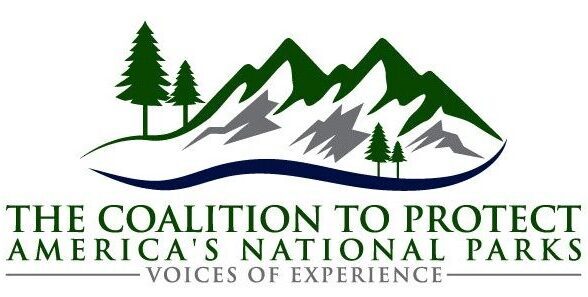
Mike Finley was born and raised in Medford, Oregon, attending high school and college there. He received an undergraduate degree in biology and did post graduate work in environmental education and natural resources management.
He got his first exposure to public lands by working various seasonal positions as a fire control aid with the U.S. Forest Service. His seasonal fire work extended to Yellowstone and Redwood national parks. Mike got his first permanent job as a park ranger in Big Bend National Park (NP). He soon transferred to National Capitol Parks in Washington, for training and development, getting his first experience with urban parks. He then moved on to Pinnacles NP. While in California he did an Intergovernmental Personnel Act (IPA) assignment to the California State park system.
Mike then was assigned as a protection ranger in Yosemite Valley handling the normal range of protection duties, along with supervising criminal investigations. He then moved on to Grand Teton NP as the park law enforcement specialist, where in addition to his normal duties, he negotiated the exchange of legislative jurisdiction between the United States and the State of Wyoming.
The next stop for Mike was Washington, D.C., where he spent three years working in ranger activities and legislative affairs. During that time he participated in the service wide task force that prepared the first revision to National Park Service (NPS) regulations in over 30 years. Mike was also a key figure in preparing the initial regulations for the newly established national parks and preserves in Alaska, which came into the system on December 1, 1978. He also worked aggressively on transfers of legislative jurisdiction between the states and the Federal government. His legislative stint had him preparing testimony, writing legislation, and testifying as a technical witness before Congress.
The first of Mike’s four superintendent jobs was at Assateague Island National Seashore (1981 to 1983). While there he worked with other seashore superintendents to identify common issues and solutions. Mike’s first regional office assignment was as associate regional director for management and operations in Alaska. His main responsibility there was to bring the 13 new parks on line. General management and operational plans were developed, in close consultation with the state of Alaska.
Mike’s next assignment took him to Florida and to Everglades NP as superintendent. He was the primary author of the Everglades Restoration and Expansion Act of 1989, which significantly expanded the park right up to the edge of the urban-agricultural interface. Everglades is all about the water – timing, distribution, quality and quantity. He completely immersed himself is these issues and convinced the Federal government to sue the state of Florida for noncompliance in assuring the quality of water flowing south into the park. That lawsuit resulted in immediate action to protect the park’s water. The state is still under a court order, and thanks to Mike’s efforts, the quality of the water is improving.
He next served as superintendent of Yosemite NP with a myriad of construction, concession, and structural and wildland fire issues. He is responsible for the first Merced River Wild and Scenic River plan which resulted in restoring meadows in Yosemite Valley, moving accommodations and picnic areas away from the river, and ending aerial fish planting in Yosemite lakes by the state of California.
After a short detail in Washington, D.C. as acting associate director of operations, Mike moved on to his final superintendent job in Yellowstone NP where he served from 1994 to 2001. There was no shortage of issues there from reducing the impacts of snowmobiles to bison management, to restoration of cutthroat trout and wolf reintroduction. One of his crowning achievements was to found the Yellowstone Park Foundation which has raised over 100 million dollars for the park to date.
The most important priority for Mike throughout his 32 year career was always resource stewardship. He considered that his top priority in every job that he held. The Department of the Interior recognized his achievements with its Meritorious Service (1995) and Distinguished Service (2002) awards.
Mike continued his pursuit of resource stewardship in his second career, serving as president of the Turner Foundation from 2001 until his retirement in 2016. His leadership of this environmental grant-making foundation allowed him to extend his reach beyond national parks. Grants aimed at improving water and air quality, protecting biodiversity through habitat preservation, reducing toxic impacts on the environment, promotion of energy efficiency and renewable and improved transportation policies, and developing and implementing solid, equitable practice and policies designed to reduce population growth rates, were distributed during his tenure. Mike currently serves as the chairman of the Oregon Fish and Wildlife Commission.
